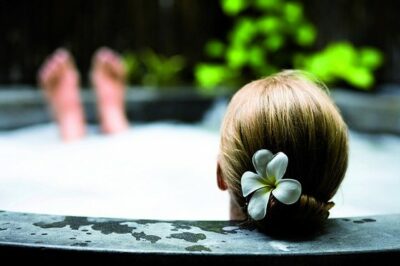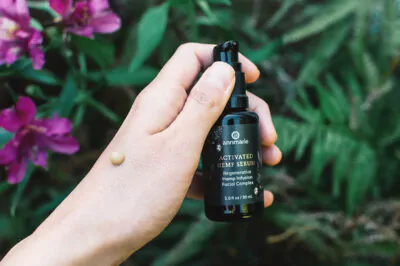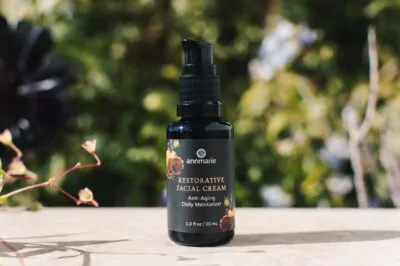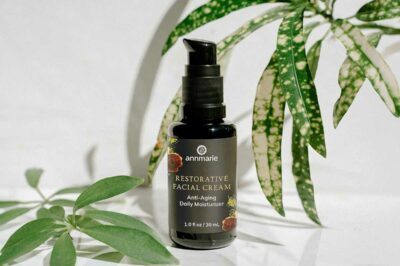Ethanolamines are ammonia compounds used in cosmetics as emulsifiers or foaming agents. You’ll see these listed on the ingredient label as “MEA, DEA, & TEA,” abbreviations for monoethanolamine, diethanolamine, and triethanolamine.
The most serious concern about these ingredients is that they may increase risk for cancer, especially with repeated and prolonged use.
Think all those suds are luxurious? Maybe, but they can also dry out your skin, and some of the ingredients that produce them are linked with cancer.
What are Ethanolamines?
Ethanolamines are clear, colorless, viscous liquids with ammonia-like odors, which have the combined properties of alcohols and amines. They reduce the surface tension of substances so that water-soluble and oil-soluble ingredients can be blended together. They’re also used to control the pH level of products.
You’ll find these ingredients in products that foam, including bubble baths, body washes, shampoos, soaps, and facial cleaners. They’re also found in eyeliners, mascara, eye shadows, blush, make-up bases and foundations, fragrances, hair care products, hair dyes, shaving products, and sunscreens.
CIR Expert Panel Recommends You Rinse It Off—Fast!
In assessing the safety of ethanolamines, the Cosmetic Ingredient Review (CIR) Expert Panel concluded that they were safe for use in cosmetics and personal care products designed for discontinuous, brief use followed by thorough rinsing from the surface of the skin. In products intended for more prolonged contact with the skin, the concentration of TEA and DEA should not exceed 5 percent, while ethanolamine should be used only in rinse-off products.
The CIR goes on to warn that these ingredients should not be used in products containing N-nitrosating agents to prevent the formation of possibly carcinogenic nitrosamines. Meanwhile, DEA can also be found in some pesticides. The World Health Organization lists it as an unclassified carcinogen.
FDA Notes Animal Studies Indicated a Link with Cancer
The Material Safety Data Sheet for ethanolamine notes that skin contact may be harmful, and that the material can produce chemical burns and may cause inflammation. Prolonged exposure can result in liver, kidney or nervous system injury. The sheet also notes that animal studies with DEA and MEA have shown a tendency for these chemicals to encourage the formation of tumors and to cause developmental abnormalities to an unborn fetus.
According to the FDA, the National Toxicology Program (NTP) completed a study in 1998 that found an association between the topical application of DEA and certain DEA-related ingredients and cancer in laboratory animals.
Bottom Line
You know my take on all this. Why use these ingredients when a) they offer absolutely no benefit to the skin, and b) they may lead to eventual harm? Though cosmetic companies will argue that they’re using small amounts of these ingredients in each product, we have yet to see studies that examine the results of using 9-10 products a day that contain these ingredients—a realistic estimate for most people, particularly women who use makeup—for five to six decades or more.
Unfortunately, these are tough ingredients to avoid if you’re shopping for personal care items at your grocery store or department store. Head to the health store or whole foods store, or check online. Read labels, and choose products that don’t put you at risk.
Avoid:
- Cocamide DEA
- Cocamide MEA
- DEA-Cetyl Phosphate
- DEA Oleth-3 Phosphate
- Lauramide DEA
- Linoleamide MEA
- Myristamide DEA
- Oleamide DEA
- Stearamide MEA
- TEA-Lauryl Sulfate
- Triethanolamine
Do you have favorite cleansers or makeup products that don’t contain these potentially harmful ingredients? Please share with our readers.
* * *
Photo courtesy HZ University of Applied Sciences via Flickr.com.
Sources
“Ethanolamine,” Material Safety Data Sheet, http://datasheets.scbt.com/sc-203042.pdf.
“Diethanolamine,” FDA, December 21, 1999; updated October 27, 2006, http://www.fda.gov/Cosmetics/ProductandIngredientSafety/SelectedCosmeticIngredients/ucm109655.htm.








I recommend the Body Deli products. They use natural ingredients and some must be refrigerated.
Also ionized water having the PH 11.5 for removing makeup and 5.5 (beauty water) as a toner for .the skin.
Almost all of the compounds you have listed under Avoid are not actually ethanolamines. They are derivatives of either MEA or DEA, but from a chemical perspective would not be comparable to MEA or DEA, either from a property perspective, or from a potential health risk perspective. It’s like saying banana bread will turn brown in a few days just because there are bananas in it. It might get moldy, but that has nothing to do with the bananas.
This is not to say that these other compounds are good for you, but any health claims (positive or negative) would need to be independently assessed from whatever evaluations were done on the various ethanolamines. (Even the 3 different ethanolamines are each likely to have a different health risk profile). What you risk by including them here is your credibility, even if you feel the more blanket approach makes it easier for people to avoid using ‘unnatural’ ingredients. (For the record, there are plenty of ‘natural’ ingredients you wouldn’t want anywhere near your body as well. Beware of over-simplification.)
Most of the other compounds you have listed could be grouped together as “Fatty Amides”. You may be able to find out more about them, and any possible concerns about them, by searching on them.
I purchased hair color from my local health food store and was surprised to see this ingredient in a ‘product made with natural ingredients”. Any recommendations for a truly natural hair coloring product? Thank you.
Hi – I would recommend SILK, to avoid all of that bad stuff 🙂
I recently found about the toxic 12 and in my home MEA. DEA and TEA were the most prevalent, thank you so much for getting out the word so that we all can be informed on what we are giving to our loved ones. I found alternative products through this website and they are all organic and non-toxic. http://www.mommysclub.com/